At the conclusion of the program, MDisability interns Michael, Sam, Zoie, and Kaila presented their final projects to the department.
The MDisability program welcomed four fantastic student interns as part of its Summer 2020 program. Michael Casden, Sam Grewe, Kaila Helm, and Zoie Sheets joined U-M Family Medicine with diverse interests and backgrounds in disability health, culture, and advocacy. Each intern was paired with a family medicine faculty who matched their interest for one-on-one mentorship and support in tangible, nine-week summer projects. Given travel and social distancing restrictions during the COVID pandemic, the interns connected via video conference with family medicine faculty and staff, disability health leaders, and with each other in virtual journal clubs.
Barriers to Accessing Hearing Aids and Hearing Loss Care

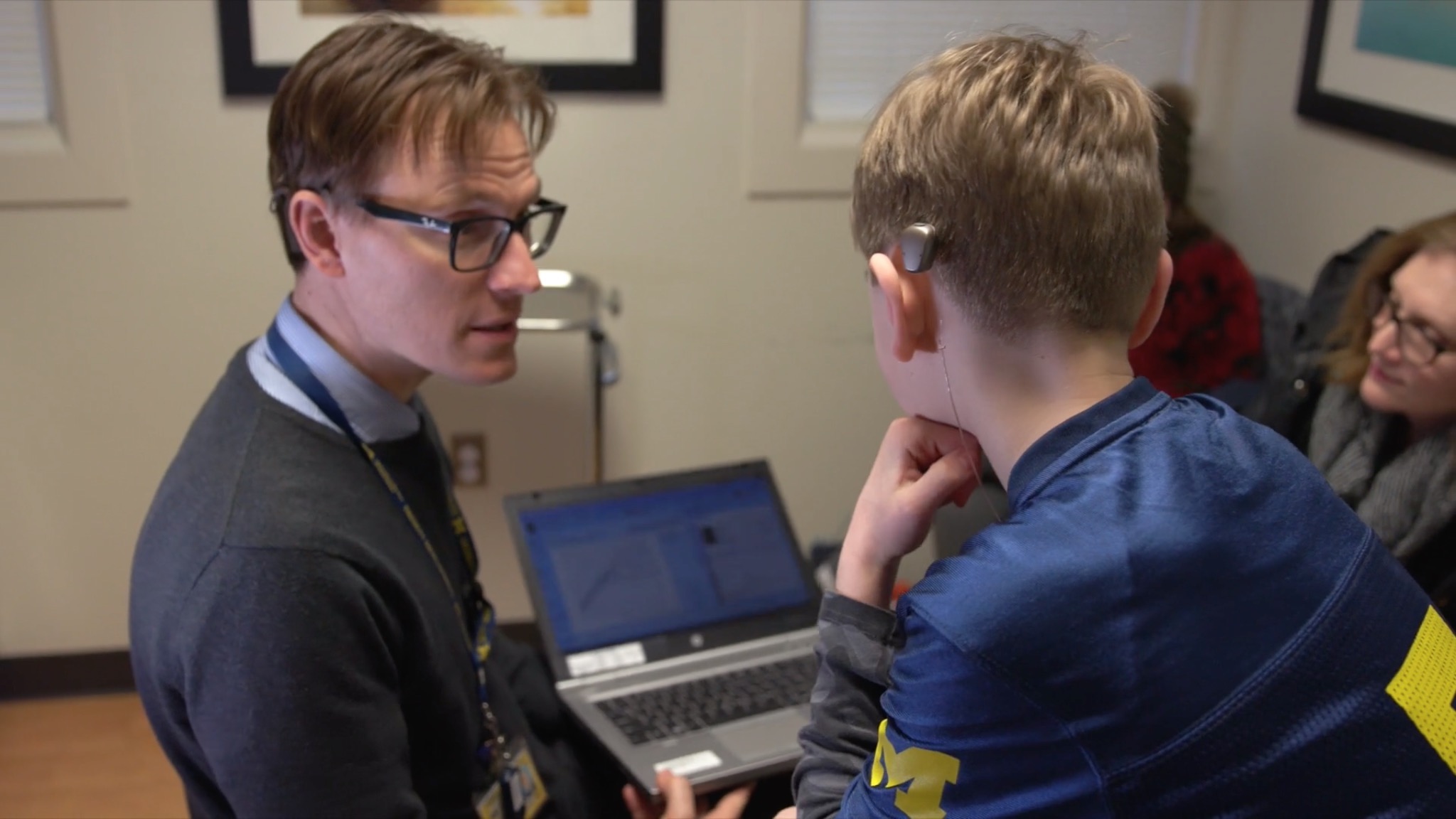
Kaila, a future medical student at the Icahn School of Medicine at Mount Sinai through their Flexmed program, conducted research with a team of family medicine faculty interested in increasing early screening for hearing loss. Kaila was paired with mentor Michael M. McKee, M.D., M.P.H., associate professor. Certified in American Sign Language (ASL), Kaila led secondary analysis of survey data from the Early Auditory Referral in Primary Care (EAR-PC) study, a multifaceted study led by Philip Zazove, M.D., professor and the George A. Dean, M.D. Chair of Family Medicine. Her final presentation was titled, “Understanding the Barriers and Facilitators for Audiology Follow-up: Secondary Analysis of Early Auditory Referral in Primary Care (EAR-PC).”
Zazove et al’s developed best practice alerts (BPA) in the EMR, which flag patients at risk in order to jump start the referral process from primary care to audiology. Kaila’s analysis focused on patient barriers and motivations in cases of audiology referrals and is the basis of two forthcoming manuscripts.
Kaila reflected on the internship experience, writing, “I really appreciated the one-on-one mentorship. I met with Dr. McKee weekly and this really helped me stay on track with completing different goals for my project. This also provided a unique opportunity for me to practice my ASL, something that I had specifically asked about when starting the internship. I also really appreciated that my faculty mentor was really perceptive to my interests i.e. having me help with the Deaf Talks (which I loved!) and helping me work on a project relating to the intersection of race and disability (research that I am really passionate about). I also liked that at one of our first few meetings he set goals with me and we made a tentative timeline which helped me stay on track.”
READ ALSO: Offsetting Hearing Loss’ Long-Term Consequences with Early Diagnoses
Behind Docs With Disabilities Stories: A Qualitative Analysis
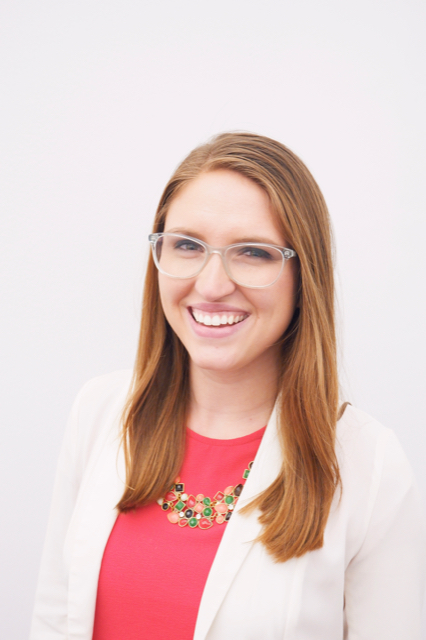
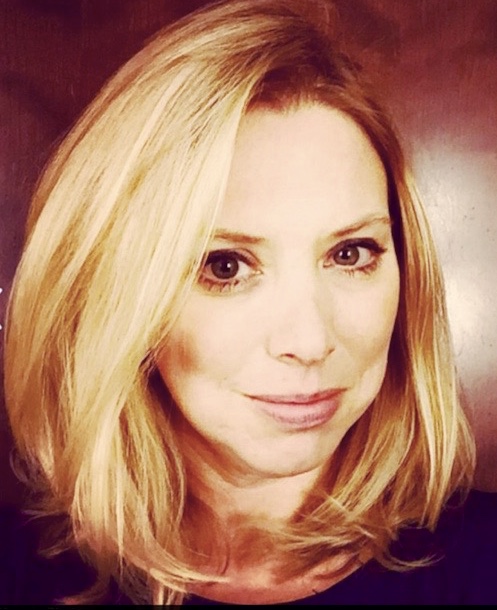
Zoie is a rising second year medical student at the University of Illinois at Chicago and an MPH graduate, specializing in primary care access for people with disabilities. Zoie continued her work with mentor Lisa M. Meeks, Ph.D., assistant professor, analyzing 16 qualitative interviews from the Docs With Disabilities podcast series. The podcast, which launches its 24th episode next week, is hosted by Dr. Meeks and features conversations with health care professionals with disabilities. Kate Panzer, a former MDisability intern, is the lead producer for the series. The Docs With Disabilities Podcast is an extension of the #DocsWithDisabilities social media campaign, which has origins in the department of family medicine. Zoie’s final presentation was titled, “Lived Experiences of #DocsWithDisabilities: A Podcast Analysis.”
Zoie’s analysis explored themes surrounding restrictive medical culture, wrestling with stigma, navigating accommodations, facing inaccessible training and workplace policies, and mentorship. She offers policy recommendations based on her qualitative analysis and will continue the work as part of Meeks Lab, including submitting the research analysis for publication.
READ ALSO: Monthly Podcast Shares The Stories of #DocsWithDisabilities
READ ALSO: New National Report on Access for Doctors with Disabilities, Co-Authored by Family Medicine Faculty
Increasing Access to Adaptive Fitness During COVID-19 and Beyond

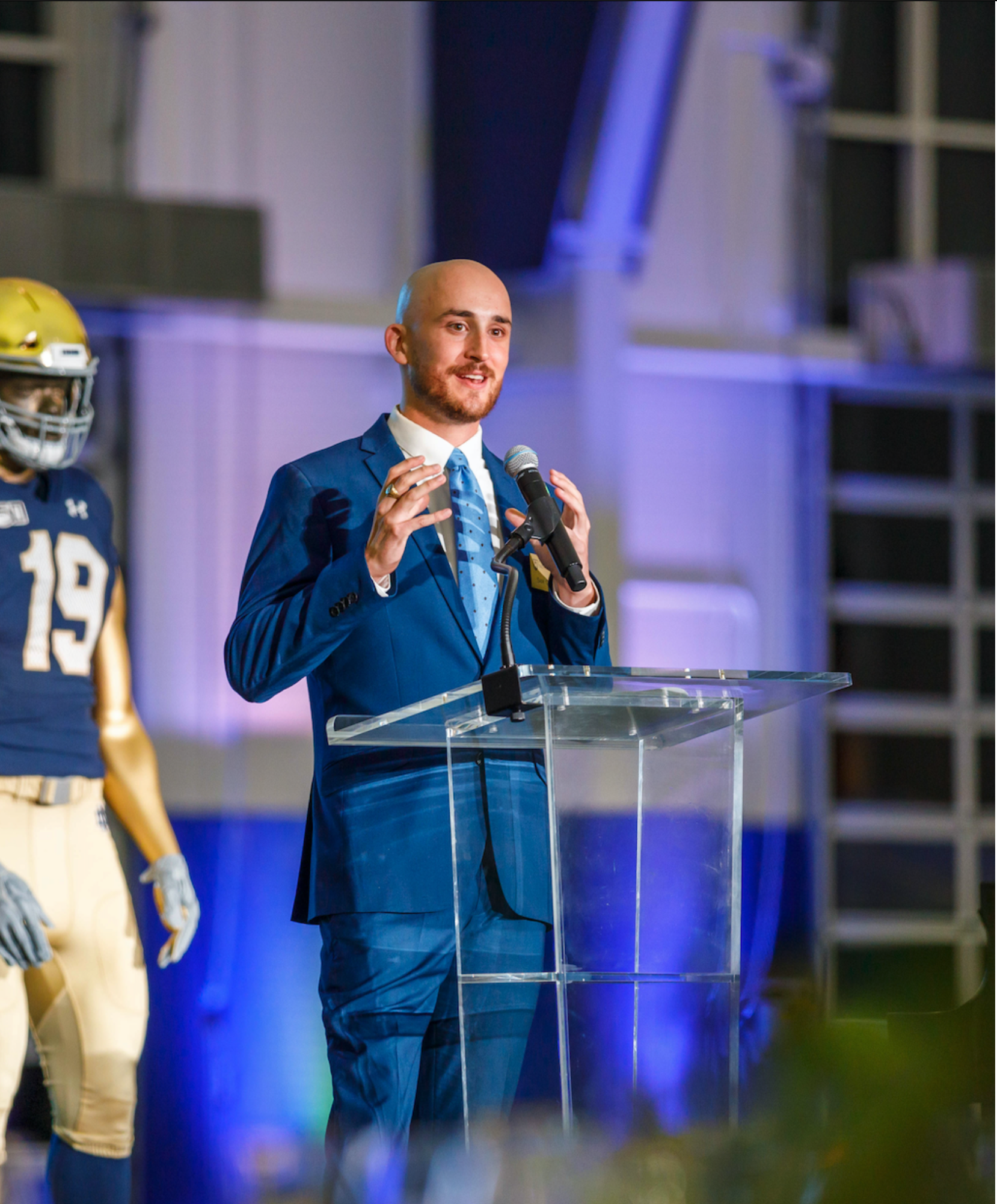
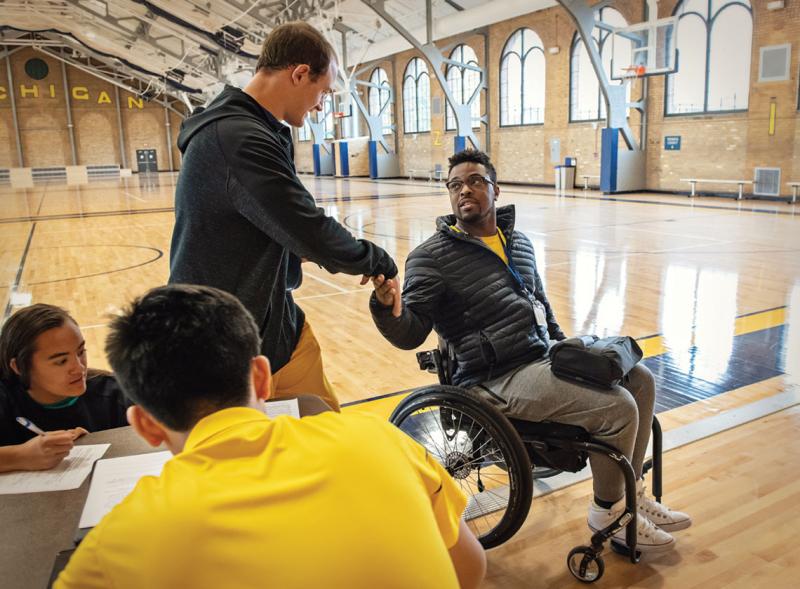
Michael, a recent U-M graduate with a B.S. in Movement Science and pre-med student, and Sam, a rising senior at the University of Notre Dame and five-time US Paralympian shared a passion for making fitness more accessible for people with disabilities. Michael and Sam worked with Oluwaferanmi O. Okanlami, M.D., M.S., assistant professor on two adaptive sports education endeavors. They presented “Increasing Access to Adaptive Fitness and Inclusive Recreation Opportunities.”
Staying Fit While Staying Put
During the COVID-19 pandemic, the health and fitness industry adapted to closed gyms and facilities by developing online “at-home” workout content. Unfortunately, most at-home fitness regimes are not inclusive of people with physical disabilities. The interns worked on Staying Fit While Staying Put, a curated set of adaptive workout videos.
“I particularly enjoyed taking a project from its infancy as an idea to an actual resource that benefits people with disabilities,” said one of the interns working on the project.
READ ALSO: An Eight-Week Adaptive Exercise Video Series From MDisability
Michigan Adaptive Sports and Inclusive Recreation Initiative
Michael and Sam built a catalog of adaptive sports and inclusive recreation educational lessons, designed to plug in to existing K-12 physical activity curriculum. The project, called the Michigan Adaptive Sports and Inclusive Recreation Initiative, is ongoing. With support from the MDisability Program, Michael and Sam partnered with U-M adaptive athletes, Ann Arbor Public School (AAPS) physical education teachers, and Project Healthy Schools, an initiative within AAPS. The interns developed and deployed a survey to local PE teachers to gather data on existing knowledge of adaptive sports and PE curriculum. They then designed a planned pilot program with a 10-sport curriculum with lesson plans for different grade levels. Their work, and Sam’s experience as a gold medal paralympian, was recently highlighted by the Olympics’ Team USA.
Ryan Wilson of Team USA writes, “Grewe does not yet know exactly where his interest in the medical field will take him, but he does know MDisability opened his eyes to the work that needs to be done.”
What’s next for the 2020 Disability Interns? In their own words:
“I am actively in the middle of the medical school application cycle. While I see out this process, I am incredibly excited to continue working with the MDisability faculty to promote the inclusion of people with disabilities in sports, medicine, and society. The MDisability Summer Internship Program helped me establish a foundation to identify and address disability-related issues throughout my career. I plan to build upon this experience and continue to advocate for people with disabilities as a medical student and ultimately as a physician.”
“I will continue fighting for increased access for those with disabilities in healthcare -- both as patients and practitioners.”
“This internship solidified my interests in disability-related issues and healthcare, and I hope to continue learning more as I navigate a future career in medicine!"
“As someone with a disability, I've experienced firsthand many of the challenges and barriers that my colleagues and I set out to tackle through this internship. Having the opportunity to work with these issues and implement real, tangible changes proved to be incredibly rewarding. The lessons I've learned, both academically and emotionally, will undoubtedly help inform my future decisions as I pursue a career in medicine. In addition, I am confident that the talented network of researchers and activists that I've met through this internship will be incredibly important in my future endeavors. “
Thank you to all of the 2020 MDisability interns, our faculty mentors, and the department for making the summer a tremendous success!


